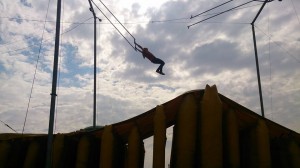According to Anne Ripley’s new book, if we want our children to succeed and be the best, we need to follow the educational models of Finland, South Korea and Poland. The book, titled “The Smartest Kids in the World” has an in-depth look at the actual learning methodologies and experiences of learners in schools in these countries. They out-perform countries like America on the international rating test PISA (test for critical thinking skills, math, science and reading).
South Africa’s performance on various international benchmarking tests has been poor. Results from two international assessments, Progress in International Reading Literacy Study (PIRLS) and Trends in International Mathematics and Science Study (TIMSS) ranked South Africa amongst the lowest of the countries surveyed, significantly lower than the average scores.
According to the PIRLS report, 43% of grade five pupils in South African schools have not developed the basic skills required for reading at an equivalent international grade four level.
Ripley found these countries employ high quality teachers to creating a virtuous-cycle of better-prepared and better-trained teachers who can have greater autonomy and thus are more satisfied in their jobs. Ripley describes one of the most important factors impacting on these countries educational performance as that of rigor – driven, adaptable students who understand the need for a good education. Ambition and academic pressure may be high, but the academic successes indicate that this pressure inspires the necessary dedication. Academics is the focus at schools, with sports programmes not featuring at all.
This is a different approach from America and other countries which may not feature high on the PISA rating system but is aligned with the culture and needs of that society. Sports and entertainment are seen as viable career opportunities and the school system reflects this. Some may argue that the bias is too far from academics towards these alternatives.
There is a flaw in the harsh assessment of what needs to be done in order to improve educational outcomes if any country wishes to perform well in terms of international benchmark tests. It assumes that we are all the same – that intelligence is a measure of performance and that logical and critical thinking are the measures of success.
The world is not made up of scientists and engineers. It is made up of a diversity of people that, together, create a richness and complexity that is astounding. To assume that doing well and passing stringent academic tests is the height of achievement lacks insight into the possibilities that exist in our world. Achievement is a personal measure, not university entrance exam.
There is knowledge to be gained in everything we do. The critical thinking required during a soccer match, the need to work with others to achieve a goal, the preparation that goes into a cultural production or the simple joy that can come from social interactions all contribute to our future success, whether we pursue a career as a computer programmer or a fiction author.
Many students would benefit from the rigor identified by Ripley in her book as key to motivating and ensuring high performance in these particular skills. Even those who are not logically inclined may find that they are capable of much more than they thought possible if applying themselves rigorously to their education in this manner. The importance is that we do not assume that there is only one route to success, that we all need to excel in same way. How we define “best” determines what is important to be measured. Just as our viewpoints on what is “best” in education, so too should we look at alternative measures.


